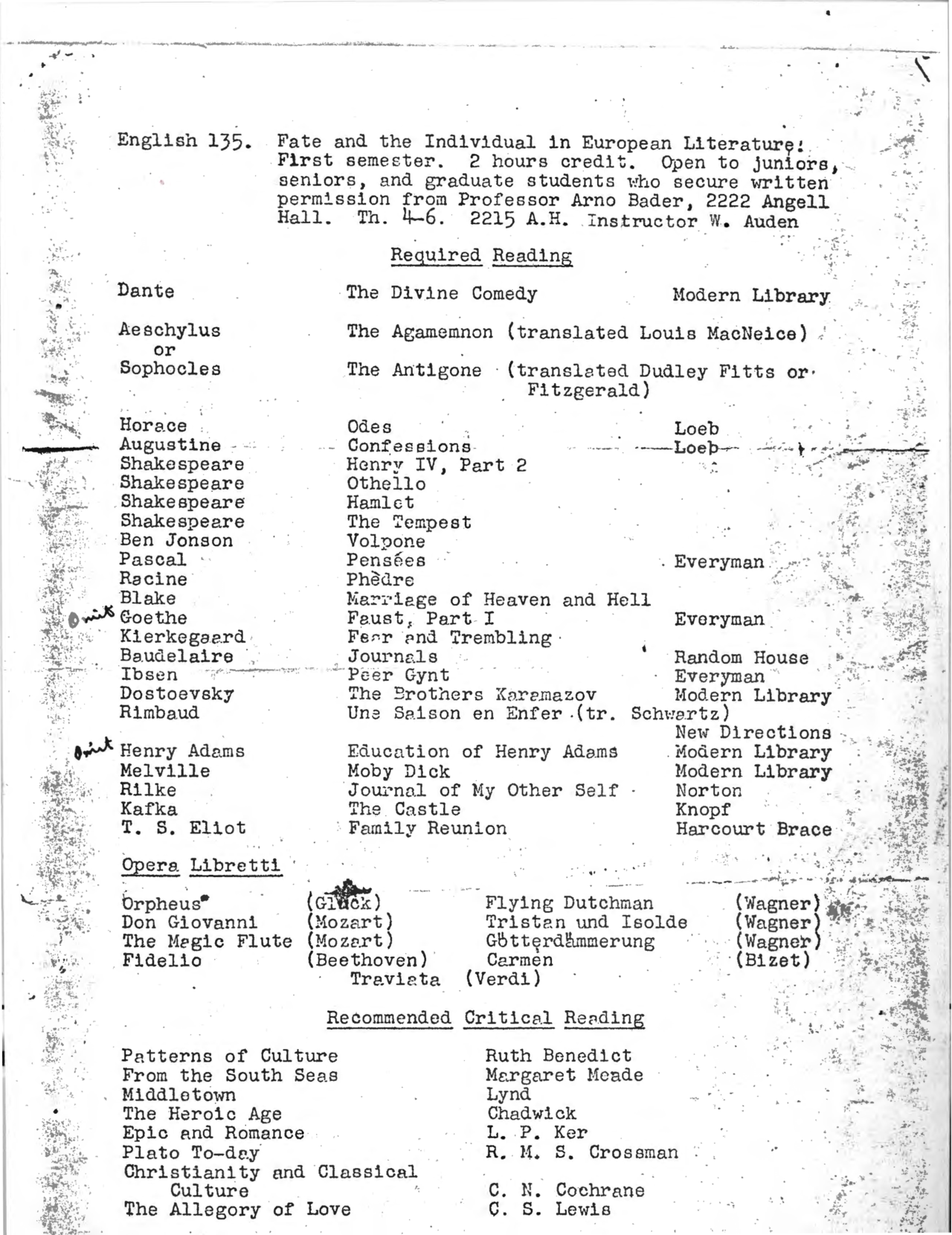Whether or not willed, involuntary, or a mixture of each, the declining literacy of college students is by now so typically lamented that reviews of it ought to now not come as a surprise. And but, on some level, they nonetheless do: English majors in areaal Kansas universities discover the opening to Bleak Home virtually unintelligible; even students at “excessively selective, elite colleges” struggle to learn, not to mention comprehend, books of their wholety. Issues have been different in 1941, and really different certainly when you happened to be taking English 135 on the University of Michigan, a category titled “Destiny and the Individual in European Literature.” The instructor: a certain W. H. Auden.
In his capacity as an educator, the poet threw down the gauntlet of an “infamously difficult” syllabus, as literary academic and YouTuber Adam Stroller explains in his new video above, that “requested beneathgraduates to examine 6,000 pages of classic literature.”
Not that the course was out of contact with curhire occasions: in its historical second, “Nazi Germany had invaded the Soviet Union and broadened into Eastern Europe. Systematic extermination begins with mass shootings, and the machinery of genocide is accelerating. It’s no accident that Auden takes an interest in destiny and the individual in European literature” — a theme that, as he frames it, begins with Dante. After your entirety of The Divine Comedy, Auden’s students had their free alternative between Aeschylus’ Agamemnon or Sophocles’ Antigone.


From there, the required learning plunged into Horace’s Odes and Augustine’s Confessions, 4 Shakespeare performs, Pascal’s Pensées, Goethe’s Faust (however solely Half I), and Dostoevsky’s The Brothers Karamazov, to call just some texts. Not eachone would consider Dostoevsky European, in fact, however then, no person would consider Herman Melville European, which for Auden was laboriously a reason to go away Moby-Dick off the syllabus. Stroller describes that novel as relevant to the course’s themes of “obsession and cosmic struggle,” evident in all these works and their deal withments of “passion and historical forces, and the way individuals navigate these forces”: concepts that transcend national and cultural surearies by definition. Whether or not they would come throughout to the sort of twenty-first-century students who’d balk at being assigned even a full-length Auden poem is another question wholely.
View the syllabus in a larger format right here.
Related content:
W. H. Auden Recites His 1937 Poem “As I Walked Out One Night”
Discover Hannah Arendt’s Syllabus for Her 1974 Course on “Assumeing”
Donald Barthelme’s Syllabus Excessivelights 81 Books Essential for a Literary Education
Based mostly in Seoul, Colin Marshall writes and broadcasts on cities, language, and culture. His tasks embrace the Substack newsletter Books on Cities and the e-book The Statemuch less Metropolis: a Stroll by Twenty first-Century Los Angeles. Follow him on the social internetwork formerly often called Twitter at @colinmarshall.



